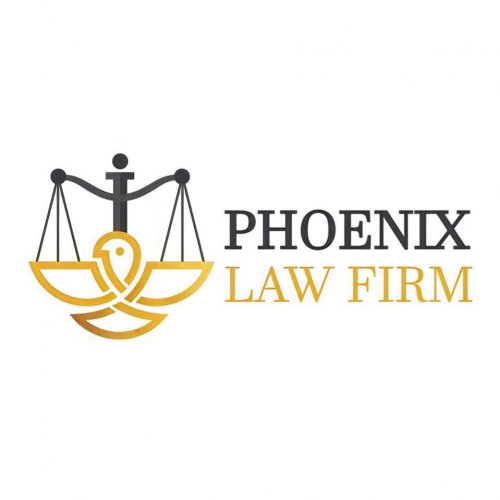Best Admiralty & Maritime Lawyers in Lebanon
Share your needs with us, get contacted by law firms.
Free. Takes 2 min.
Or refine your search by selecting a city:
List of the best lawyers in Lebanon
About Admiralty & Maritime Law in Lebanon
Admiralty and maritime law in Lebanon governs all legal matters related to maritime activities. This includes shipping, navigation, waters, shipping routes, and the transportation of goods and people by sea. Lebanon, with its strategic location on the eastern coast of the Mediterranean Sea, possesses a vibrant maritime industry that plays a significant role in its economy. The country's maritime laws are designed to regulate the rights and responsibilities of various stakeholders, such as ship owners, sailors, and maritime workers, and ensure smooth operations within Lebanese waters.
Why You May Need a Lawyer
There are several situations where you might require legal assistance in the realm of admiralty and maritime law in Lebanon:
- Commercial Disputes: Conflicts over contracts for the carriage of goods, maritime liens, or sale and purchase of ships.
- Personal Injuries: Incidents involving injury or death to seamen or passengers.
- Environmental Violations: Issues related to pollution from ships or breaches of environmental law.
- Insurance Claims: Disputes over marine insurance policies covering cargo or vessels.
- Ship Arrests: Situations requiring the arrest of a vessel to secure a claim.
- Cargo Disputes: Issues related to loss or damage of cargo during transit.
Local Laws Overview
Lebanese admiralty and maritime law is influenced by international conventions and treaties, as well as local regulations. Here are some key aspects:
- Commercial Maritime Law: Offers governance over shipping contracts, shipbuilding, and registration.
- Environmental Protection: Adheres to international protocols to prevent marine pollution.
- Security and Safety Regulations: Enforces standards for vessel safety and crew qualifications.
- Dispute Resolution: Lebanese courts and arbitration settings handle maritime disputes.
Frequently Asked Questions
What is the official body governing maritime activities in Lebanon?
The Lebanese Ministry of Public Works and Transport is primarily responsible for regulating maritime activities.
How do maritime laws affect foreign vessels in Lebanese waters?
Foreign vessels must comply with both international conventions and Lebanese maritime regulations while in Lebanese waters.
Can I arrest a vessel in Lebanese waters?
Yes, under certain conditions related to secured claims, you can arrest a vessel in Lebanon to ensure the enforcement of maritime claims.
What is a maritime lien and how is it enforced in Lebanon?
A maritime lien provides security for a maritime claim, and enforcement usually involves the arrest of the vessel in question.
Are there special procedures for resolving maritime disputes in Lebanon?
Maritime disputes can be resolved through Lebanese courts or arbitration, depending on the contract terms or parties involved.
What should I do in case of a maritime pollution incident?
Report the incident immediately to the Lebanese Ministry of Environment and comply with its directives.
How are ship registration laws managed in Lebanon?
Ship registration is managed through the Directorate General of Land and Maritime Transport which sets out requirements for registration.
What is the liability of a ship owner in the event of an accident?
Liability depends on the circumstances of the accident and relevant contracts, often requiring legal assessment.
How do I become a qualified maritime professional in Lebanon?
Maritime qualifications are regulated by the Institute of Maritime Studies and relevant professional bodies.
What insurance is necessary for operating a ship in Lebanese waters?
Marine liability, hull, and machinery insurance are typically necessary to operate a vessel legally in Lebanese waters.
Additional Resources
For further assistance and information, consider reaching out to the following:
- Lebanese Ministry of Public Works and Transport: Overarching body for maritime regulations.
- Lebanese Ministry of Environment: Consult for environmental guidelines and issues.
- Institute of Maritime Studies: Offers training and certification for maritime professionals.
- Local maritime law firms: Specialized legal assistance for complex maritime issues.
Next Steps
If you require legal assistance in admiralty and maritime law, consider taking the following steps:
- Identify Your Issue: Clearly determine the nature of your maritime legal concern.
- Consult a Specialist: Reach out to a lawyer or law firm specializing in Lebanese admiralty and maritime law.
- Gather Documentation: Collect relevant documents and evidence pertaining to your case.
- Evaluate Options: Discuss possible legal strategies and outcomes with your lawyer.
- Take Action: Follow your lawyer's guidance to pursue the necessary legal proceedings or resolutions.
Lawzana helps you find the best lawyers and law firms in Lebanon through a curated and pre-screened list of qualified legal professionals. Our platform offers rankings and detailed profiles of attorneys and law firms, allowing you to compare based on practice areas, including Admiralty & Maritime, experience, and client feedback.
Each profile includes a description of the firm's areas of practice, client reviews, team members and partners, year of establishment, spoken languages, office locations, contact information, social media presence, and any published articles or resources. Most firms on our platform speak English and are experienced in both local and international legal matters.
Get a quote from top-rated law firms in Lebanon — quickly, securely, and without unnecessary hassle.
Disclaimer:
The information provided on this page is for general informational purposes only and does not constitute legal advice. While we strive to ensure the accuracy and relevance of the content, legal information may change over time, and interpretations of the law can vary. You should always consult with a qualified legal professional for advice specific to your situation.
We disclaim all liability for actions taken or not taken based on the content of this page. If you believe any information is incorrect or outdated, please contact us, and we will review and update it where appropriate.
Browse admiralty & maritime law firms by city in Lebanon
Refine your search by selecting a city.








